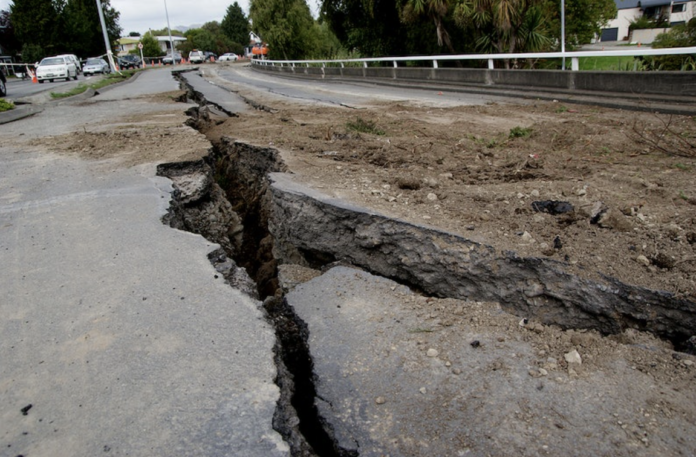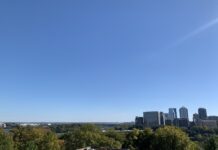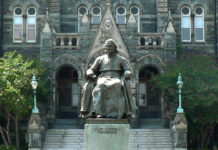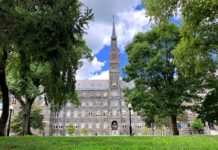![]()
A 7.7 magnitude earthquake struck parts of southeastern Turkey and northern Syria Feb. 6, 2023; 9,000 individual earthquake aftershocks followed. As of Feb. 25, the death toll rose to over 50,000 across both countries, with the large majority of casualties occurring in Turkey.
Roughly 5,700 miles away, Georgetown University’s Turkish community bonded together amidst the tragedies that impacted their home country. However, their solidarity may be more related to the future of Turkey than to its recent past.
Alara Ekşioğlu (CAS ’26) is a current freshman born and raised in Turkey who has immediate family both in the United States and in Istanbul. Ekşioğlu and her older sister, Asya (SFS ’25), both attend Georgetown University while her mother (SFS ’00), father and younger sister live in Istanbul. Alara spoke to The Georgetown Review about her experiences on campus since the earthquake.
“Being in Turkey, where it’s happening, everyone is equally impacted,” Ekşioğlu said. “But here, it feels wrong to react to the earthquake and feel sad because you’re comparing yourself to everyone else here who is able to live their lives with normalcy.”
Given the eight hour time difference international students from Turkey have with their families, a strong community on campus has proven crucial. “It’s easier to make an initial bond with other Turkish students,” notes Ekşioğlu. “We honestly don’t even know each other well, but there’s… an inherent sense of community. It’s also nice because you don’t have to explain things like cultural differences.”
According to Ekşioğlu, the Turkish Students Association was nearly dormant prior to the earthquake. The Association was formed in the 1990s, and—according to Ekşioğlus’ mother’s experience—used to be more vibrant. The Association is not officially recognized by Georgetown University at this time, which Ekşioğlu credits to the club’s previous inactivity. Nevertheless, the Association has since been revived with new life as Turkish Hoyas organized fundraising and awareness campaigns in the wake of the earthquake.
That being said, Ekşioğlu noted a commonly-held sentiment among Turkish Hoyas that some classmates and friends have been insensitive in their lack of understanding and graciousness regarding the earthquake and its emotional toll. Ekşioğlu expressed the University has done more to support Turkish students than the overall student community, whether it be individual professors offering extensions or the school providing resources to help the Turkish Student Association hold a fundraiser. As the earthquakes continue to ripple and new concerns over seismic events arise, solidarity between Turkish Hoyas and the student body is vital.
Only about a month since the initial earthquake, the event exited the American public’s minds. This pattern, especially in regards to geographically distant disasters, reflects how easy it is to move on from a newsworthy disaster event you are not personally connected to. For Turkish students studying abroad in the U.S., the situation could not be more different.
Ekşioğlu echoed concerns prominent in Turkey yet underrepresented here in the States, the greatest being fear over recent predictions of greater—both in quantity and magnitude—earthquakes encroaching closer to Istanbul. Regarding these fears, Ekşioğlu noted, “Back home, people are afraid of even going into buildings at all;”the physical disaster has carried through to psychological turmoil as Turkey awaits greater natural disasters. Ekşioğlu emphasized the extreme mental ramifications manifested as a result, which she worries may be permanent.
Clearly evident in the past month, Turkey has incredibly poor earthquake prevention infrastructure; the country’s Ministry of Justice took action by arresting over 230 people—mostly contractors—connected to specific building collapses.
However, the fault may really lie in existing government building regulations; in particular, a 2018 “amnesty law” legalized hundreds of thousands of structures that disregarded building codes, where many of these pardoned structures ignored earthquake safety measures. This is incredibly disconcerting, especially because Turkey lies on two major fault lines, and is thus one of the world’s most seismically active regions. Fear over the lack of preparation for possible future disasters and preventative infrastructure in combination with the emotional damage of the February earthquakes makes the entire situation mentally, emotionally and psychologically torturous.
In the United States, and especially here at Georgetown, the best course of action seems to lie in solidarity with the Turkish community abroad. The Turkish Students Association of Georgetown remains very active and is currently raising funds for recovery efforts. To learn more about the TSA’s efforts, please visit the instagram page @georgetowntsa, or go directly to the Turkey Philanthropy Funds Türkiye Relief Fund.












